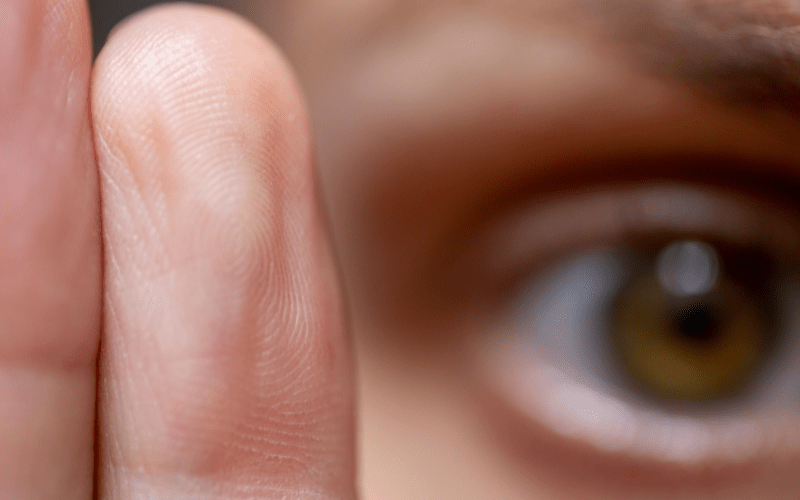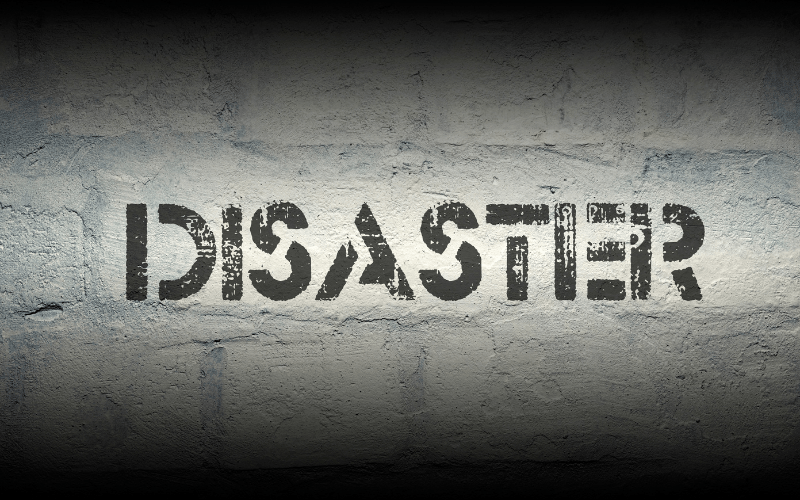How to Find a Good EMDR Therapist
Guest Blog Post by Jason Linder, PsyD
“EMDR is proving to be the silicon chip of psychotherapy; it allows people to process incredible amounts of material in a shockingly short time.” -Michael Elkin, Ph.D.
 The good news is there are many compassionate, well-trained, and capable EMDR therapists. The bad news is a lot of therapists market themselves as EMDR trained without sufficient training, practice, or skill. There are also programs (like PESI) conducting EMDR training that aren’t verified or approved by the EMDR International Association (EMDRIA). This would be like seeing a therapist who is not licensed as a therapist in their state; it does not necessarily mean they are inadequately trained, but it can raise the odds significantly, which not only doesn’t help you but could possibly harm you.
The good news is there are many compassionate, well-trained, and capable EMDR therapists. The bad news is a lot of therapists market themselves as EMDR trained without sufficient training, practice, or skill. There are also programs (like PESI) conducting EMDR training that aren’t verified or approved by the EMDR International Association (EMDRIA). This would be like seeing a therapist who is not licensed as a therapist in their state; it does not necessarily mean they are inadequately trained, but it can raise the odds significantly, which not only doesn’t help you but could possibly harm you.
Why search for an EMDR Certified Therapist?
While there are good therapists who are not certified, and an EMDR Certified Therapist with EMDRIA does not guarantee you great therapy, it does raise the chances remarkably. Over 8,000 EMDRIA Certified Therapists across the globe have met a high standard of training and experience in EMDR. EMDRIA upholds the highest standard for the practice and research of EMDR therapy to ensure quality training. The EMDRIA certification process requires:
- attending a training that is a minimum of 50 hours: 20 hours of instructional material, 20 hours of supervised practicum, and 10 hours of consultation about case conceptualization and utilization of EMDR therapy. This is a minimum requirement for a clinician to ethically market themselves as ‘EMDR trained.’
- at least 20 hours of additional EMDR consultation
- at least 50 hours delivering EMDR therapy with at least 25 clients
- completing at least 50 EMDR sessions
- 12 hours of continuing EMDR education every two years
- at least two full years of clinical experience
Given how important it is for you to heal some of the most difficult experiences in your life, to be vulnerable with someone (a therapist) you do not yet know personally, and to invest valuable time and money in your work with them, it is worth finding someone well-trained. On EMDRIA’s website, you can search for a therapist in your area using their ‘Find an EMDR Therapist’ directory search. Not all good EMDR therapists will show up there (EMDRIA charges therapists an annual fee of $80 for students and $135-180 for licensed therapists), but it can raise the odds.
Pro tips to help you find the right one
To reiterate, seeking an EMDR Certified Therapist with EMDRIA does not guarantee a competent therapist or a powerful, safe therapeutic experience. However, it can help considerably increase the odds. I also recommend checking to see if the therapist has trauma-informed language in their social media and marketing materials like their website, videos, etc. This means understanding that trauma refers to any event that still has a long-lasting negative impact on your functioning, performance, and relationships, overwhelms your coping strategies, and usually changes your sense of self. It means understanding how what has happened to you in the past affects you today. All prospective EMDR therapists should also know that traumatic and maladaptively stored memories create distress, and once the memories are reprocessed with therapy, you can heal. When you have a therapist in mind, I would recommend:
- Seeing if they can explain their EMDR training clearly and succinctly (and hopefully show you their EMDR training completion certificates if they are not an EMDRIA Certified Therapist; in that case, you can at least check to see if their training program was EMDRIA-approved), broader background calmly and non-defensively, and explain how they would use EMDR therapy to help you with your presenting issue.
- Ensuring, if possible, their training is EMDRIA Approved Training (you can check for EMDRIA Approved Trainers here).
- Check for their badge. If the therapist is certified or a consultant with EMDRIA, you can check the therapist’s credentials by visiting their profile in the EMDRIA directory and clicking on their badge. It will show you the date the therapist earned that credential with EMDRIA. There are three badges: EMDR Certified Therapist, EMDR Consultant, and/or EMDR Trainer.
- Requesting a free 10-20 minute phone consultation to see if the therapist feels like the right fit for you. EMDR works best when you feel safe, connected with, listened to, and supported by your EMDR therapist.
- Educating yourself on EMDR. You can start by checking out EMDIA’s ‘How EMDR Therapy Can Help,’ the ‘Experiencing EMDR Therapy‘ webpage, ‘Thinking about EMDR Therapy‘ video, and ‘The Eight Phases of EMDR blog‘ and infographic. In addition, check out my summary of the recently supporting research, eight phases, and what to expect in therapy.
- Watching a free sample of a full EMDR session with Dr. Jaime Marich. This would help you educate yourself so you know what you’re getting into and what to expect regarding process and result.
- Asking about their training and comfort with dissociation (even if you don’t know exactly what it means, all good trauma therapists should know how to answer clearly), especially if you were diagnosed with a dissociative disorder. If that is the case, finding an EMDR Certified Therapist with specialized training in treating dissociative disorders is ideal.
- Check to see if they engage in ongoing consultation to keep their skills sharp, get support with cases they experience as challenging, and stay current with the latest developments in the field.
Pro tips during your EMDR treatment by a qualified therapist
EMDR treatment is a lot like putting a cast on a broken bone: parts of the process will feel very uncomfortable, unpleasant, and downright painful. But it usually leads to deep, long-term healing. I know it takes courage to trust the process. Once you find the right therapist for you, I would recommend:
- Preparing to feel emotionally drained after sessions and having self-care strategies in place, like music, shows, hiking, resting, napping, and time with loved ones.
- Not scheduling important tasks like job interviews after sessions.
- Preparing an after-therapy playlist and giving yourself time to recharge and regroup. What helps you relax? Netflix? Exercise? Family time? Try to schedule those when possible after sessions.
- If you are unhappy with something the therapist does or says, I’d recommend addressing it directly and ensuring that they respond adequately, even if it feels challenging.
- Checking with yourself and your loved ones: Is therapy helping? Especially after three to eight sessions, the research (Duncan et al. 2010) suggests that change tends to happen early in the therapy process (not always), even if treatment takes months or even years, depending on trauma and symptom severity.
You can have healing support
Just like you’d never call someone weak who can’t walk because they have a broken leg, you’re not weak, flawed, or inadequate because of the trauma you’ve experienced. The odds are your trauma can be healed. With the proper support, it would likely be money, time, and energy well-spent. After all, what’s more important than your mental health, well-being, and relationships? I hope this helps set you up for success. I wish you the best in your healing process.
Dr. Jason N. Linder, Psy.D., LMFT is a professor at Alliant International University. He is a licensed bilingual (Spanish-speaking) therapist specializing in relationship, trauma, addiction-related, and mindfulness therapies. Dr. Linder especially enjoys working with clients who are therapists, creators, entrepreneurs, and people who stutter. He is passionate about diversity, social justice, and serving underserved, multi-stressed, and disenfranchised communities. He completed his Doctor of Psychology degree at the California School of Professional Psychology in San Diego, his Master’s in International Counseling in Mexico City at Alliant International University, and his Bachelor’s in Spanish and Psychology (double major) at UC Davis. Dr. Linder provides consultation to EMDR therapists as an EMDR Consultant. He is also close to completing his certification in EFT couple therapy. His doctoral research is focused on combining EMDR and EFT with couples. He owns a private practice in Scripps, San Diego. Dr. Linder has research published in the peer-reviewed journals: Couple & Family Psychology, Journal of Marital and Family Therapy, Journal of International Systemic Therapy, as well as the Journal of Couple & Relationship Therapy. He has also written for Psychology Today, Psychotherapy.net, Psychotherapy Networker, and Sage Research Methods Cases. Dr. Linder has presented at professional and academic conferences. Dr. Linder works extremely hard for his clients; he’s always learning more with articles, podcasts, conferences, etc., and clients report feeling exceptionally cared for in therapy with Dr. Linder, yet challenged. In addition, Dr. Linder loves serving therapists. He is experienced in addiction intervention services and immigration and trauma evaluations.
References
Duncan, B. L., Miller, S. D., Wampold, B. E., & Hubble, M. A. (2010). The heart and soul of change: Delivering what works in therapy. American Psychological Association. https://psycnet.apa.org/doi/10.1037/12075-000
EMDRIA. (2023, December). Becoming an EMDR therapist 2023. https://www.youtube.com/watch?v=1Ek27CriWyM
EMDRIA. EMDRIA digital badges. https://www.emdria.org/emdria-digital-badges/
EMDRIA. Find an EMDR therapist directory. https://www.emdria.org/find-an-emdr-therapist/
Hoogsteder, L. M., ten Thije, L., Schippers, E. E., & Stams, G. J. J. M. (2021). A meta-analysis of the effectiveness of EMDR and TF-BT in reducing trauma symptoms and externalizing behavior problems in adolescents. International Journal of Offender Therapy and Comparative Criminology, 66(6-7), 735-757. https://doi.org/10.1177/0306624X211010290
Matthijssen, S. J. M. A., Lee, C. W., de Roos, C. Barron, I . G., Jarero, I., Shapiro, E., Hurley, E. C., Schubert, S. J., Baptist, J., Amann, B. L., Moreno-Alcazar, A., Tesarz, J., & de Jongh, A. (2020). The current status of EMDR therapy, specific target areas, and goals for the future. Journal of EMDR Practice and Research, 14(3), DOI: 10.1891/EMDR-D-20-00039. http://dx.doi.org/10.1891/EMDR-D-20-00039.
Back to Focal Point Blog Homepage
Additional Resources
If you are a therapist interested in the EMDR training:
- Learn more about EMDR at the EMDRIA Library
- Learn more about EMDR Training
- Search for an EMDR Training Provider
- Check out our EMDR Training FAQ
If you are EMDR trained:
- Check out EMDRIA’s Let’s Talk EMDR Podcast
- Check out the EMDRIA blog, Focal Point
- Learn more about EMDRIA membership
- Search for Continuing Education opportunities
If you are an EMDRIA Member:
- Learn more about EMDR Consultation
- Find clinical practice articles in EMDRIA’s Go With That Magazine
- Search for articles in Journal of EMDR Practice and Research in the EMDRIA Library
Date
February 12, 2024
Contributor(s)
Jason Linder





